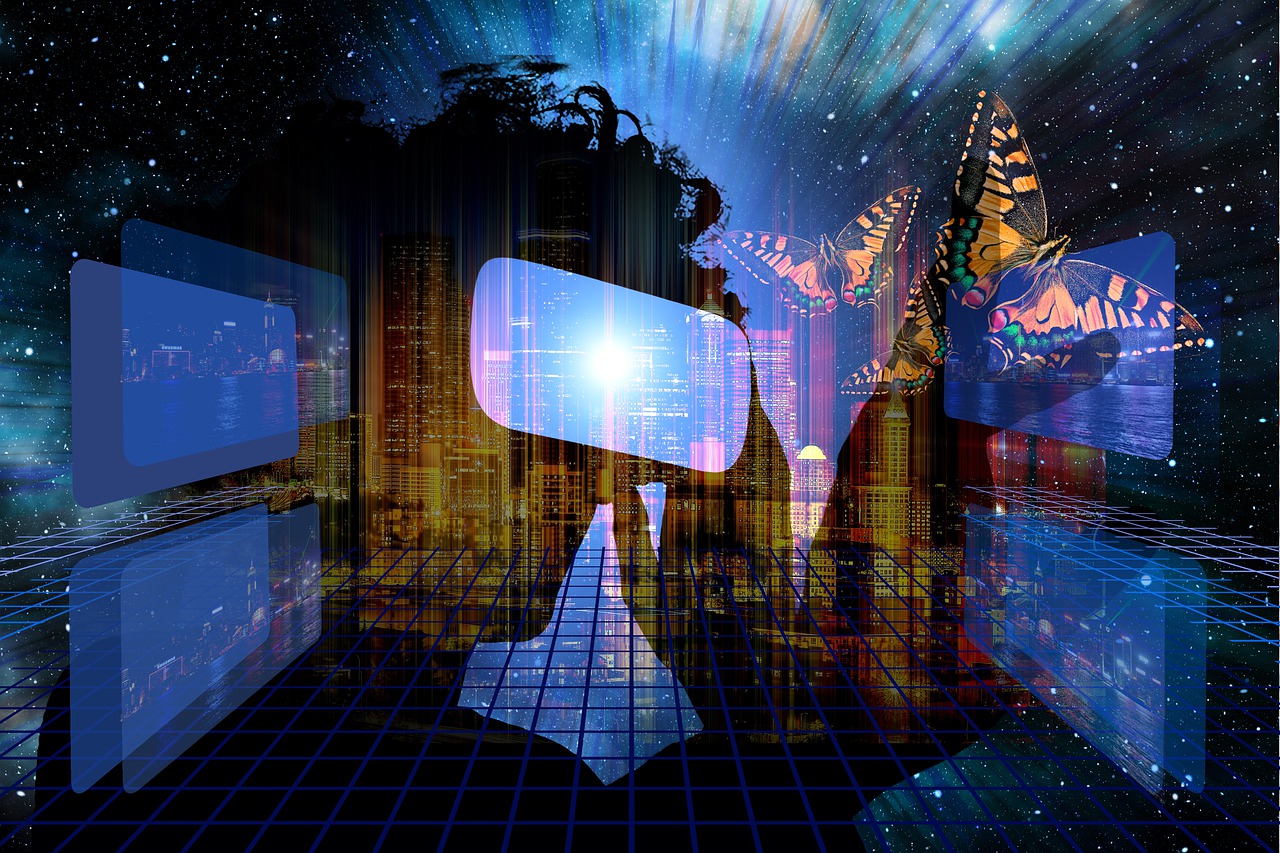Among the innovations today, Virtual Reality (VR) is seen as one of the most radical advancements in a world captivated by fast-paced technological evolution. It provides activities which traverse physical and digital realities, so as we integrate VR into our daily lives more and more it asks how developing technology is literally reframing human sight.
How VR will change your senses — The Sensory Overhaul
VR is fundamentally the art of fucking with sensory inputs to produce a perception of ‘being there. VR is a very sensory medium, especially with regard to visual and auditory cues (and more recently even haptic feedback — i.e. making it feel like you are actually touching the virtual object). This trick our brain into accepting the virtual world as real and this change in perception on where we are located has a deep impact of how you perceive your surroundings.
But the visual system has been found to be uniquely altered by VR. The 3D worlds which VR headsets generate are designed to be perceived as actual, physical environments by our eyes and brain. This level of immersion can also produce what is called “cybersickness” or “VR sickness,” that takes place when our body feels different from the computer-simulated environment that surrounds us. VR Sickness Symptoms: Nausea, Dizziness, Disorientation Aversion. Studies found that the increase in duration of VR experience was related to more severe occurrence levels of post-VR nausea sickness symptoms [SpringerLink](Keele University — Study online)]
Beyond merely affecting our immediate sensory experiences, VR is a technology that can change how the world appears to us more generally. It is even possible to experience the psychological effect of “derealization”, where excessive time spent in a virtual space leads you to feeling that your real-world environment seems less vivid or faster. This can be particularly dangerous when this effect is taking place within a therapeutic setting: for treatments of PTSD or phobias in VR. At the core of immersion technology, while effective in controlled doses that allow for a therapeutic impact (MDPI) and Keele University – Study online.
The Mental Shift: How VR Affects the Mind
VR changes something beyond our perception or emotions, and that is how we experience reality. This is the working of brain’s plasticity- its potential to change and reorganized. During VR experiences in virtual reality people feel different too: space, memory and also time. Deploying through VR a brain rewires in order to SIT and SNOOP around pay attention on what that virtual environment is, which can be good or bad depending on the use.
VR is also helping in neuroscience research by enabling the exploration and treatment of cognitive disorders, aiding understanding on how brain processes sensory information. Studies have demonstrated that VR can support neurodegenerative patients in maintaining neural pathways and cognitive strength. Nonetheless, there is also a growing fear that overuse of VR could cause cognitive overload — where the brain finds it difficult to differentiate between what happens in virtual and real-life situations thereby possibly causing problems such as memory distortion or impaired decision-making (MDPI).
The Bigger Picture: The Social Implications of VR
In addition to the effect of VR on personal experiences, it directly implements change in society as well. VR could change how we interact with each other and the world more than almost anything. For instance, VR can completely change the face of education by creating learning experiences that are unlike any other and surpass traditional techniques. From their classroom, students could now ‘travel’ to historical sites; take a 3D human body for exploration or simulate scientific experiments among many other. Nevertheless, this begs the question of what impact these experiences have on socialization and critical thinking skills (Keele University – Study online).
We know that in the world of entertainment, VR has changed how we think about consuming media. Games, films or even concerts are continuously evolving to be immersive where the users feel they themselves in between them. This potentially creates constantly engaging content for the creators, but it also presents daunting questions about how we consider narrative and reality. And when the border between fiction and reality blurs beyond recognition, what do we have? What does this mean in relation to our understanding of truth and authenticity? (MDPI)
VR and the Future of Human Perception
The future will experience greater influence of VR on human perception as the technology continues to become more sophisticated. We might see innovations like haptic gloves that enable users to experience feeling virtual objects and olfactory VR which adds scents in the overall vibration of experiences. While these advancements will create a far more intuitive VR experience, they also introduce new risks that need to be carefully navigated.
The most important problem on the table now will be to strike a right balance between huge advantages of VR (like its usage in education, therapy and entertainment) with reality we should not forget. While we migrate through this brave new digital world stability is much needed to prevent these experiences from shaping our perspective and uses all of that technological goodness for a way in which VR can even reach the masses without marring any concept of what reality really is. [Keele University – Study online][SpringerLink].



